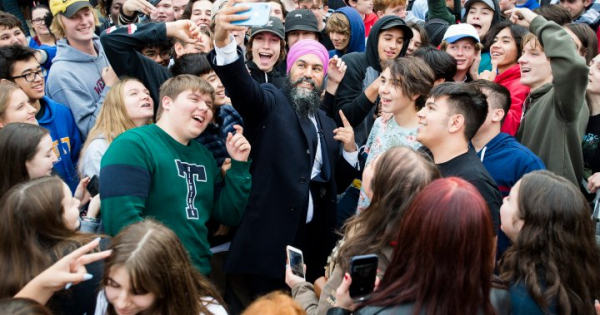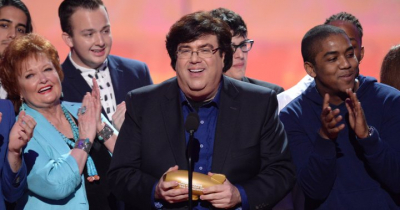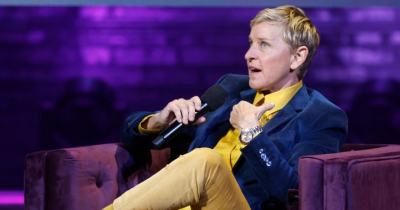In the Era of Gen Z: A Transformative Force in Canadian Politics
As the nation gears up for the next federal election, a distinct and influential voting bloc is set to make its mark — Generation Z. Comprising approximately 4.5 million Canadians under 30, this demographic shift is poised to reshape the political landscape, accounting for around 14% of eligible voters in 2025. Gen Z, born in 1997 and onwards, is marked by its unique approach to political engagement, differing significantly from its millennial predecessor.
Pollsters and demographers alike highlight the distinctive traits of Gen Z's political participation, emphasizing a focus on issues rather than party affiliations. In Canada, the priorities at the forefront of this generation's concerns are glaringly clear: climate change and housing take center stage. What sets Gen Z apart is their readiness to traverse the political spectrum in alignment with these priorities, displaying a pragmatic and adaptable approach to garnering support for their causes.
Russell Van Raalte, a 21-year-old economics student at Queen's University, embodies the nuanced perspective of his generation. Reflecting on Gen Z's skepticism, he notes, 'I think we look at the housing crisis and the environment and we say to ourselves, really, can the government do very much? I'm not exactly sure.' This sentiment reflects a shift in trust, with Gen Z approaching politics with a more critical lens, demanding tangible solutions to the challenges they face.
The defining issues for Gen Z extend beyond politics, influenced by real-world experiences such as the global pandemic. The disruption caused by COVID-19 has left an indelible mark on their political consciousness, with a heightened awareness of the fragility of systems and the need for responsive governance.
As the oldest members of Gen Z approach their late twenties, their impact on the 2025 federal election is undeniable. The blend of environmental consciousness, skepticism, and adaptability characterizing Gen Z's political ethos is poised to shape the trajectory of Western democracies, challenging traditional paradigms and ushering in a new era of issue-centric politics in Canada.
Shifting Political Landscapes: Gen Z's Dynamic Preferences and the Future of Canadian Politics
In the realm of political preferences, the influence of Generation Z becomes increasingly apparent, challenging traditional voting patterns and party allegiances. Pollsters, both in Canada and abroad, have discerned a marked inclination among the youngest cohort of voters towards progressive parties. This divergence is particularly noteworthy in the United States, where younger voters lean towards the Democrats, and in Canada, English-speaking Gen Z adults exhibit a distinct preference for the NDP.
A November poll conducted by Ipsos shed light on this trend, revealing that nearly 40% of Canadians under 30 favored the NDP, while only 18% of those over 30 shared the same inclination. However, it's crucial to note that despite this seemingly robust support, the impact of the NDP among younger voters may be tempered by historically lower voter turnout within this demographic.
The fluidity of party preference among Gen Z is another defining characteristic. Unlike their older counterparts, younger voters are more likely to consider switching allegiances based on the alignment of political parties with their prioritized issues. Grace Kim-Shin, a 21-year-old political science student at the University of Ottawa, encapsulates this sentiment, stating, "I think for me, it's actually always been an issues-based engagement with politics.
Interestingly, while younger voters tend to view progressive parties as more aligned with their priority issues, the Ipsos poll revealed that almost one in three respondents under 30 expressed a potential inclination to vote Conservative. This shift is likely attributed to the Conservatives' focused attention on housing, an issue deemed higher in priority by Gen Z than other generational cohorts.
Supporting this observation, polling conducted by the Privy Council Office (PCO) consistently places housing at the forefront of voters' concerns, particularly among younger respondents. Climate change and the environment also maintain a steadfast presence among the top three issues, emphasizing the multifaceted nature of Gen Z's political priorities.
As Generation Z continues to wield its influence on the political landscape, the intersection of dynamic preferences, evolving issues, and an engaged, issues-centric approach promises to shape the future trajectory of Canadian politics.
The Generational Gulf: Navigating Climate Urgency and Cultural Shifts in Politics
In the evolving landscape of political discourse, Generation Z emerges as a distinctive force, driven by a sense of urgency and a unique set of priorities. For 21-year-old Grace Kim-Shin, a political science student at the University of Ottawa, one key differentiator between her generation and the older one is the centrality of climate change in political conversations.
I think for young people, this is really at the forefront of what we care about when it comes to politics, particularly because we have a huge stake in this political issue for our future," Kim-Shin reflects. There's a palpable concern among Gen Z that the older generation may not share the same sense of urgency regarding climate change, a critical issue that shapes the very landscape of their future.
This sentiment is echoed in a 2021 poll by the Pew Research Center, which found that 45% of Gen Z adults and 40% of Millennials actively engaged on social media platforms to advocate for action on climate change. In contrast, only 27% of Generation X and Boomer adults participated in similar online discussions. The digital realm becomes a powerful avenue for younger generations to amplify their voices and mobilize around issues they hold dear.
However, the generational divide is stark when it comes to certain political preoccupations. The 'culture wars' surrounding the 'woke' agenda, often a focal point for older voters, perplex Generation Z. Russell Van Raalte, a 21-year-old economics student at Queen's University, notes, "I feel like when I speak to people who are older than me, they really tend to focus in on that and say that the 'Woke Left' or whatever is really only focusing in on these issues.
A 2022 PerryUndem/YouGov poll of American voters underscores this divide, revealing that among respondents over 60, 62% viewed the 'woke' agenda as a big problem, whereas only 45% of those aged 18-29 shared the same concern. As Generation Z navigates this complex political terrain, their emphasis on diverse issues, digital advocacy, and a quest for meaningful conversations challenges traditional paradigms, marking a dynamic shift in the political dialogue of the future.
As the baton of political influence passes to Generation Z, a discernible shift in priorities, communication channels, and cultural awareness comes to the forefront. The urgency of climate change stands as a defining issue for this generation, forging a distinctive political identity that centers around safeguarding the planet for their future. Engaging actively on social media, Gen Z leverages digital platforms to amplify their voices and mobilize for causes they hold dear, notably evident in the fervent discussions on climate action.
However, a notable generational gap emerges when it comes to certain political debates, with the 'culture wars' surrounding the 'woke' agenda causing a divergence in perspectives. The younger generation often finds themselves puzzled by the emphasis placed on these issues by their older counterparts, highlighting a nuanced divide in the political landscape.
As Gen Z navigates this complex terrain, their commitment to diverse issues, insistence on digital advocacy, and a desire for meaningful, solutions-oriented conversations challenge traditional political norms. The future of politics appears to be shaped by a generation that seeks not only to address immediate concerns but also to redefine the very nature of political discourse, paving the way for a dynamic and inclusive political future.






